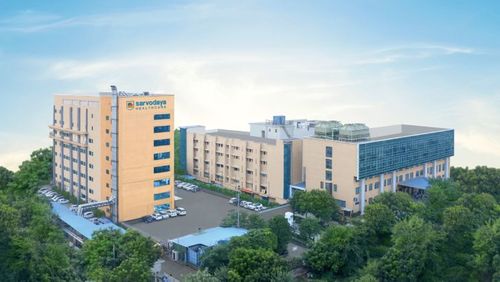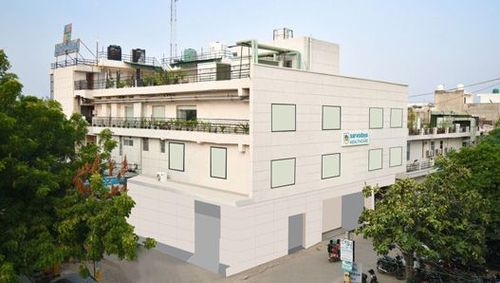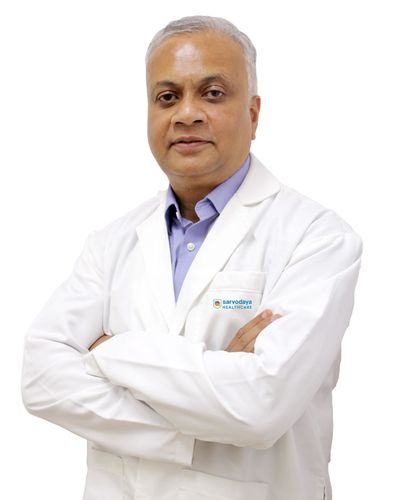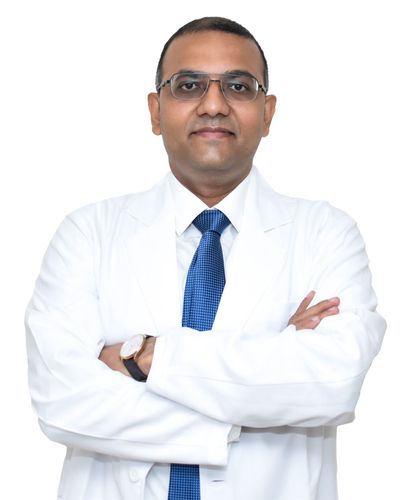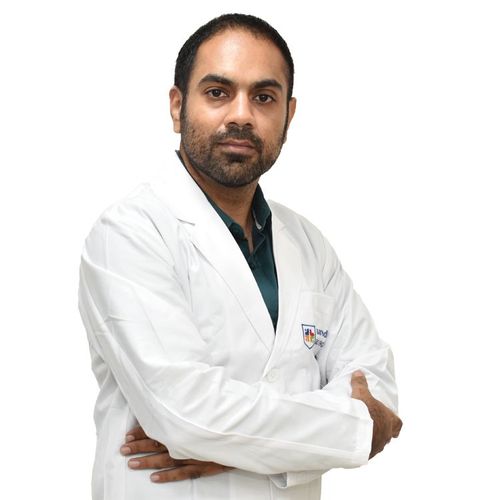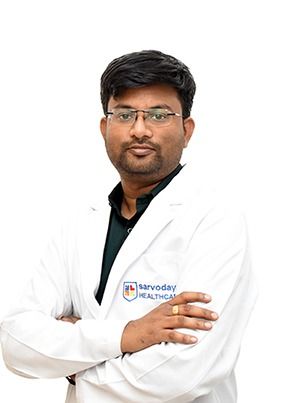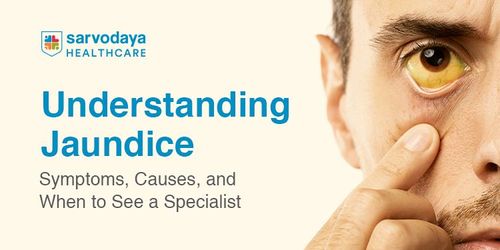Overview
Jaundice develops when excessive bilirubin levels in the bloodstream cause yellowing of the skin, mucous membranes, and whites of the eyes. It typically indicates liver or bile duct problems and can occur with various medical disorders.
At Sarvodaya Hospital, our Gastroenterologist in Delhi NCR provide comprehensive evaluation and evidence‑based treatment ranging from lifestyle modifications to surgical interventions in severe cases. Treatment depends on the underlying cause, with some cases requiring liver transplantation when significant liver damage is present.
Jaundice Symptoms
- Yellowing of the skin, eyes, and mucous membranes
- Dark-coloured (tea-coloured) urine
- Pale or clay-coloured stools
- Persistent itching, often worse at night
- Fatigue and weakness
- Abdominal pain, especially in the right upper quadrant
- Loss of appetite
- Nausea or vomiting
- Unexplained weight loss
- Fever (if infection is present)
- Confusion or altered mental state in severe cases
Causes of Jaundice in Adults
- Pre-hepatic causes- Excessive breakdown of red blood cells (haemolysis), haemolytic anaemia, and Gilbert’s syndrome.
- Hepatic causes- Liver dysfunction from viral hepatitis (A, B, C, D, E), alcoholic liver disease, drug-induced liver injury, autoimmune hepatitis, and cirrhosis.
- Post-hepatic causes- Bile duct obstruction due to gallstones, pancreatic cancer, bile duct tumours, and strictures.
- Lifestyle and exposures- Alcohol abuse, hepatotoxic medications, and viral infections increase the risk of jaundice.
- Medical evaluation- Assessment by expert Gastroenterologist in Faridabad ensures accurate diagnosis and effective management.
Diagnosis of Jaundice
Accurate diagnosis of jaundice helps identify the underlying cause, assess severity, and guide effective treatment, ensuring patients receive expert care at a trusted Gastroenterology Hospital.- Clinical assessment and labs – Detailed medical history, including alcohol use, medications, travel, and family history. Physical examination focuses on the abdomen, lymph nodes, and signs of chronic liver disease. Blood tests include complete blood count, liver function tests (ALT, AST, ALP, GGT), bilirubin levels, and coagulation studies.
- Imaging studies – Ultrasound, CT, or MRI evaluate liver structure, bile duct dilation, and masses.
- Advanced procedures (select cases) – ERCP or liver biopsy may be performed for definitive diagnosis and to guide management.
Treatment of Jaundice
- Supportive care for viral hepatitis – Rest, proper nutrition, and avoiding hepatotoxic substances help the liver recover naturally.
- Antibiotics and immunosuppressive therapy – Bacterial infections are treated with appropriate antibiotics, while autoimmune hepatitis may require corticosteroids or other immunosuppressants.
- Bile duct obstruction management – Endoscopic procedures such as ERCP with sphincterotomy or stent placement, and surgical interventions restore bile flow effectively.
- Symptom relief – Severe itching is managed with cholestyramine or other bile acid sequestrants.
- Advanced liver disease – Patients with severe liver damage may be evaluated for liver transplantation to ensure long-term survival and quality of life at centres providing expert jaundice treatment.
Prevention & Lifestyle Management
At Sarvodaya Hospital, we guide you in protecting your liver, preventing jaundice, and maintaining long-term health.
- Limit alcohol and avoid hepatotoxic substances – Reducing or eliminating alcohol intake and avoiding harmful medications supports liver function and prevents further damage.
- Maintain a healthy weight and stay active – Regular exercise and balanced nutrition improve metabolism and reduce strain on the liver.
- Vaccinating against hepatitis – Timely vaccination for hepatitis A and B helps prevent liver infection.
- Healthy diet and hydration – Adequate protein, vitamins, and fluids support liver healing and recovery.
- Regular check-ups – Routine medical monitoring ensures early detection of liver problems and expert management at a trusted Pulmonology Hospital in Faridabad.
Pre–Post Treatment Care
Before treatment:
- Comprehensive evaluation, including complete medical history, physical examination, and baseline laboratory studies to determine jaundice severity and underlying cause.
- Nutritional assessment and dietary counselling to support liver function and address any deficiencies.
- Medication review to identify and discontinue potentially hepatotoxic substances.
- Patient and family education about the condition, expected treatment course, and importance of adherence to medical recommendations.
After treatment:
- Regular monitoring with blood tests to assess treatment response and liver function improvement
- Symptom management, including medications for itching, nutritional support, and lifestyle modifications
- Follow‑up imaging studies to evaluate the resolution of bile duct obstruction or liver inflammation
- Long‑term surveillance for chronic liver conditions, including screening for complications and monitoring for disease recurrence
- Ongoing support for lifestyle modifications, including alcohol cessation and dietary management.


